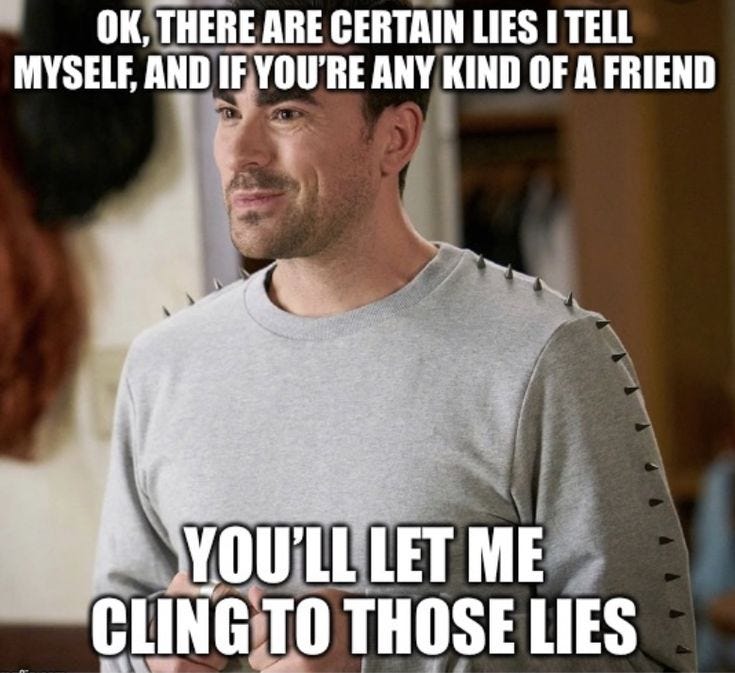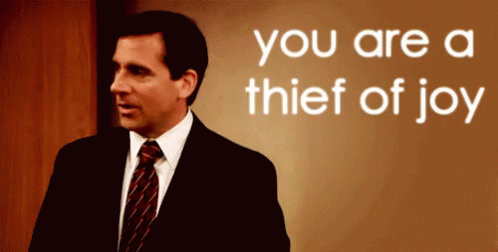Missions, Race, and Me
White American Christians spearheaded the modern missionary movement to save the world. And avoid themselves.
In 1845, what is now the largest Protestant American denomination, the Southern Baptist Convention, was born. It also marked the beginning of what has become the largest, most sophisticated missions organization in the history of the world, the International Mission Board, which today sends thousands of missionaries around the world and has a budget of hundreds of millions of dollars.
Long story short, the southerners seceded not because the national convention called slavery bad per se, but because it wouldn’t call it good. The southerners literally left so that they could appoint slaveholders as missionaries. Nonetheless, they maintained that the new organization's purpose was not to defend slavery but to pursue "the extension of the Messiah's kingdom."
And that, boys and girls, is what we call a “spiritual bypass.” Psychologist Dave Verhaagen defines this as “the use of spiritual explanations or strategies to avoid dealing with challenging emotional issues.” My fellow missionary kid and therapist Caleb calls it the “Jesus wall.” I’ve been known to call specific varieties of it “redemption porn” (when you short circuit the hard emotional process of healing and forgiveness with a gratuitous, shallow display), or “the Bible colander” (when you strain human emotions, relationships, and experience through a few badly interpreted Bible verses and evangelical platitudes). You may use those, I have yet to trademark them.
And if you’ll stay with me, I’ll show you how American evangelical missions have been one of the most elaborate spiritual bypasses of all time.
Honestly, if you just reflect on this meme—which I made myself (and am instantaneously trademarking right now with my mind—like Trump declassifies documents)—you probably don’t have to read this whole long-a** article.
Present day critics of the missionary enterprise often fixate on its impact on the ground, claiming its marriage with colonialism/imperialism supersedes any good accomplished. In fact, as any serious scholar of missions, including secular ones (such as Melani McAlister and David Hollinger), will tell you, this is lazy analysis that glosses over the complexities and varieties of missionary motives and influence, as well as those of indigenous converts. As McAlister puts it, missionaries "operated at oblique angles to state power, with their own interests and agendas."
What I’m more interested in, because it seems much clearer to me, is the impact of missions for white American Christians. It’s a legacy of ignorance, hypocrisy, and avoidance that was there at the very beginning and continues to this day.
Even contemporary critics at the beginning of American missions pointed out the irony of their positioning. It's hard to imagine now, because missions is so integral to Southern Baptist identity, but in fact missions were controversial among American Baptists in the early part of their history. While critics most often argued that mission boards violated Baptists' congregationalist and religious liberty principles, anti-missionary Baptist Daniel Parker, who was nonetheless a virulent racist, pointed out the strangeness of men who made their money off of African American labor "throw[ing] in liberally to the support of missions” (quoted by Thomas Kidd and Barry Hankins). Not surprisingly, Black Americans also pointed out the hypocrisy, despite the fact that they occasionally participated in overseas missions themselves. Never one to mince words, Frederick Douglass, in the context of eviscerating slaveholding Christianity more generally, observed, “We have men-stealers for ministers, women-whippers for missionaries, and cradle-plunderers for church members...We have men sold to build churches, women sold to support the gospel, and babes sold to purchase Bibles for the poor heathen! all for the glory of God and the good of souls!" (He even italicized that himself! this is from the appendix of his autobiography).
After the Civil War, too, missions served an important escapist function for American Christians yearning for healing and reconciliation, a national project for which historian David Blight argues racial justice and equality were sacrificed. Although Southern Baptists never reunified with their northern counterparts, most divided American denominations did reintegrate, and missions in general took on a new energy and professionalism in the context of expanding American empire, trade, and big business. Again, one can't help but notice the glaring, well, weirdness, of the tremendous activity and enthusiasm for foreign missions in the late 19th and early 20th centuries, at the very same time that millions of freed slaves were trying to find their families, secure education and jobs, form community institutions, and build new lives out of nothing. While at the same time Native Americans were being massacred and divested of the remainder of their land (and targeted by missionaries as part of a cultural annihilation effort). While at the same time anti-immigrant fervor gained steam in the context of new, non-European waves of immigration.
So, just in case you aren’t grasping my point, let me spell this out for you. White American Christians were organizing and raising money and literally building corporation-like entities and taking months-long ship voyages and even dying of malaria in some places—oh and seriously abusing their own children but I’m not even going to get into that—to go and “serve” non-white people elsewhere in the world while AT THE VERY SAME TIME, IN THEIR VERY OWN COUNTRY, LITERALLY THEIR VERY OWN FOLK were lynching black people and generally doing everything they possibly could to disenfranchise and pillage and steal and discriminate against people of color of all kinds and generally behaving like really sh*tty human beings with very few exceptions.
OK the insanity of this calls for an additional gif, sorry/not sorry.
In fact, these non-white American populations were the target of many missions efforts by American Protestants during this period, but white Christians’ concern stopped at the boundary where paternalism might bleed into calls for equality or even recognition of shared humanity. They could not even muster the courage to speak out against the horrific racial violence taking place in America AGAIN LITERALLY DONE BY CHRISTIANS that made a mockery of white Christian claims of superior civilization. Black activist Mary Church Terrell lambasted white Christians' tolerance of their own "barbarism" while "thousands of dollars are raised by our churches every year to send missionaries to Christianize the heathen in foreign lands." And consider the absolute absurdity of the General Association of Congregational Churches in California passing a resolution in the late 19th century to support efforts to restrict Chinese immigration essentially because the Great Commission instructed missionaries to "go" instead of stay and "a heathen nation can be...transformed only while...living in their natural surroundings." (both quotes from Kathryn Lum)
You know, it kind of reminds me of some white evangelicals I know right here and now who work with refugees in through their churches then turn around and support a big orange racist guy who tried to end the entire US refugee program. Huh. But I digress.
After the Civil War, foreign missions were a far safer and more satisfying way for Americans to engage with race than confronting the fallout from slavery. It only cost the actual missionaries themselves any real discomfort (it cost them—and their children—dearly). That enterprise contained no such dangerous implications for American life. It happened "over there," far from sight, within a cultural context that seemed to prove white American Christian superiority rather than pointing out its moral failings. And it was something all white Americans, north and south, could agree on. It was also something even Black and white Christians could agree on, to a point. Black missionaries also went to Africa in the 19th century and also carried with them notions of moral and cultural superiority. However, white Christians proved more amenable to supporting Black missionaries within the antebellum movement for solving the "race problem" through colonization (a.k.a removing Blacks from the United States altogether). In the postwar context, when missions gained in prestige and professionalism, Black Christians found it difficult to access missionary opportunities. In addition, Black churches were increasingly overwhelmed by the needs of their communities at home.
After World War II, American missions emerged from the devastation of two wars, the Great Depression, as well as the climax of theological battles between fundamentalists and modernists, to find themselves in a new era in which America's geopolitical power and revolutions in mass communication and international transportation super-charged their efforts. In addition, the skirmishes between theological liberals and conservatives all but ended on the mission field, with liberals, conflicted over missions in a post-colonial context, completely ceding the ground to evangelicals.
The civil rights movement at home and nationalist movements around the world made the hypocrisy of American missions more obvious. More progressive evangelicals and many missionaries themselves argued in favor of civil rights by pointing this out, seeking to turn American evangelicals' enthusiasm for foreign missions against their opposition to greater racial equality. But it was an uphill fight. Southern Baptist seminary professor Thomas Bufford Matson, who argued that racial discrimination at home harmed overseas missions, articulated the problem, as well as white evangelicals' preference for missions over civil rights reforms, writing in 1947, "It is comparatively easy to be radical when one does not have to face the real problem or results of his radicalism." A newly appointed Southern Baptist missionary admitted in 1947 that she had wanted to stay in the South to fight for civil rights, but that her parents would have been "disgraced." Her mother was "proud of me now going to Africa as a missionary." (both quoted in Alan Scott Willis). Dave Verhaagen recalls the strangeness of "missions week"--during which students were encouraged to go to Africa to spread the gospel--at his all white Christian school in the 1970s, one of a wave of such schools founded in in the wake of school desegregation that "actively shelter[ed] us from Black people in our own hometown."
The American church and American missions have eventually evolved to incorporate, at least on a surface level, new standards of racial equality. In the missions world, there is more emphasis on cultural sensitivity and training and greater flexibility on "non-essential" cultural concerns so as to adapt the gospel to international contexts. There is more discussion of "partnerships" with indigenous Christians (still more discussion than action, in my opinion) and more missionaries going out from the Global South, although Americans still dominate. The reconfiguration of missions to focus on the 10/40 window and "unreached people groups" was likewise in part an effort to show greater awareness of colonialism's contrived national borders.
But these efforts and missions writ large continue to serve white evangelicals’ notions of race. J. Russell Hawkins, Jemar Tisby, Robert Jones, and others have discussed how "colorblindness" has replaced overt racism as a way to resist calls for more systemic change. Evangelical theology's emphasis on personal conversion and individual faith over examination of structure, culture, and systems has long deftly dispensed with issues of race via claims that racism is an issue of personal sin (note the parallels, by the way, with how evangelicals handle abuse). The aim of colorblindness--"I see people, not color"--shuts down any conversation around race by implying that anyone who brings it up is perpetuating the problem and failing to forgive the past. Again, the parallels with the abuse crisis are hard to miss, and Black Christians in white evangelical spaces, like church abuse victims, find themselves hitting the "Jesus wall" or buried in "redemption porn" when they try to convey their experiences. It's perhaps no wonder that PRRI survey data show an abundance of white evangelical self-deception; they both rate themselves high in having "warm feelings" towards African Americans while holding the most racist views.
Missions continue to be very helpful to this end and more generally to white evangelicals’ self-conception. I have literally heard missionaries claim they can’t be racist when they have served decades in Africa. And how can white evangelicals be racist if they support such missions with money or go on short term mission trips themselves, as roughly a million white American Christians do every year?
As a missionary kid who was brought up in the culture of missions, I can answer honestly: It's incredibly easy. The mission field in most cases is like a race-relations- fantasy camp for white people. White Americans are treated with enormous deference in most places, particularly in Africa, because of their race and its signaling of other power. Non-white people are grateful for everything they do. They are rarely if ever challenged or accused of any bad motive. Then, of course, you have the implied spiritual superiority of Christian exclusivity--we are the ones with the answers and the truth, and everyone else—non-Christians, but even the wrong kind of Christian, as defined by us—is lost. The mission field allows white evangelicals to tell a really inspiring, lovely story about themselves as colorblind, altruistic heroes bringing capital-T-Truth and often material aid to grateful people who have nothing and reflect back to them an airbrushed image.
This contrasts markedly with what white evangelicals experience from Black Americans, many of whom actually—you might even say inconveniently—meet white Christians' own criteria for salvation (a personal relationship with Christ and a strict interpretation of scripture). These Black people aren't deferential at all. Many of them are rather pissed off. They complain. They aren't grateful. They are never satisfied. They don't cooperate with the American Christian narrative that is so dear to white evangelicals' self-perception. They remind them--by their very existence!--of America's moral failures and the white church's deep complicity in that.
And in fact, few white evangelicals--certainly few career missionaries--even actually know or spend any time around Black Americans. I use myself as an example. I personally did not have a single close relationship with an African American until I was 30 years old. Think about that! I grew up in Africa. And I did not really know a single African American. And most of my relationships with Africans were filtered through the distorting prism of missions.And, if I'm honest, my racial views reflected that. In my early adult years in the US, I contrasted the African Americans I encountered unfavorably with the Africans I knew.
Part of the reason was I had very little understanding of either African American history or African history. That's right. I went to school in Africa--a white, American mission-run school—and not only did I not have a single lesson or even brief mention involving African history, literature, or deeper-than-surface-level culture, I had a skewed view of American history.
I did not have a proper understanding of the long term impact of slavery and racism on American life until I went to graduate school in history. In my experience, I wasn't unusual either. I have met few missionaries with a good understanding of either American history or colonial history or even just the history of the country in which they serve. It's frankly astonishing. My school in Kenya has tried harder in recent years to incorporate more (any) African history and literature. But it has yet to successfully hire a single African teacher (there are somewhat legitimate reasons why--that I personally still find wholly unacceptable--that I'll skip for now).
The bottom line is--whatever missions’ impact has been around the world--and I will grant that a lot of good has been done--what has not been done here at home is equally noteworthy. I can't help but wonder what America would be like if white Christians had devoted even a tenth of the money, effort, sacrifice, devotion, and prayer toward the equality of and reconciliation with non-white people here at home as they have saving non-white people far away, chasing dreams of spiritual heroism, and cleansing themselves in the warm, inviting baths of other people's problems. Which seem so much more manageable at a distance.














I am a member of a mainline Protestant church and I keep pissing everybody off when I ask if maaayyyybeee the reason we are in decline is because of the accumulated weight of everything you wrote about AND the fixation on maintaining these ridiculous white elephant buildings.
What a riveting read. Thank you for sharing.